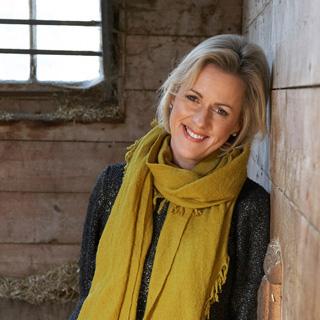Top Girls
I’m not a huge theatregoer. I struggle to dispel the suspicion that a lot of it is more fun for those taking part than those paying to watch. I loved War Horse enough to watch it twice; but then it’s hard to believe that life-sized wooden horse puppets are getting anything from being ogled by me and 600 blubbing middle-aged provincial women.
Despite all this, yesterday me and my prejudices headed for London with a friend to see one of the last performances of Caryl Churchill’s resurrected Top Girls. Challenging, modernist drama! Feminist drama! I know. I can feel your waves of envy from here.
And it’s fair to say I was a bit trepidatious. Olivia Poulet, who stars as three different characters, and who, for reasons too complicated to detail here, I was about to meet, had warned me that the first act was “a bit trippy”. She wasn’t wrong.
A 14th century Viking woman sits at a dining table with, amongst others, a female pope (the wonderful Lucy Briers), a geisha, a Scottish philanthropist (Stella Gonet), and a 1980s Joan-Collins lookalike played by the exquisite Suranne Jones.
The talk overlaps, the timing stagey and unnatural, so that it takes about ten minutes for the brain to adjust to both the surreal setting and the choppy bursts of dialogue. Uh-oh, I thought. This is going to be a long evening. And then, suddenly, I, and the rest of the audience were sucked in.
In fact, I was gripped by this production, which has been critically well reviewed by both the Guardian and the Daily Telegraph (not a publication known for its love of surreal 30-year-old feminist stage productions).
The shoulder pads and “we-must-act-like-men-to-succeed” schtick may feel a little dated, but it hasn’t lost its power to shock. The second act features two young girls in a Norfolk garden. At one point one apparently licks menstrual blood from the other’s finger; a moment which prompted the whole of one side of the audience to shriek with revulsion. (Um, guys, it’s not, you know, real)
But it is also moving in its examination of the price women pay for success, and what they are prepared to tolerate. It is especially poignant in its treatment of Poulet’s character, a young woman who is plainly doomed to fail in the new, cold, go-getting climate of the 1980s. What seemed most extraordinary to me was the way Poulet seemed to physically alter with each character; here solid, plump and plain, here as a secretary ten years older, desperately trying to fit a higher social bracket. “It’s what good character actors do,” my companion, who is familiar with the ways of thesps, told me.
I had arranged to meet Olivia in the pub afterwards. And that was the biggest surprise. I turned from my drink as the door opened, waiting to see the woman I had witnessed on stage, and looked away. That slightly lumpen creature couldn’t be this slight, pretty girl standing in the Clarence? But it was. This wasn’t a matter of make-up, or prosthetics; just that weird alchemistic way of seeming, temporarily, to inhabit somebody else’s skin.
I had a great night, for lots of reasons. In part because it is fun, when you spend much of your working life alone, to hang out with other writers, and especially with actors, who are a different tribe entirely. In part because of the ‘rock’n’roll’ taxi me and my companion got home. But for that brief, mildly bewildering experience of human morphing alone, the evening would have been worth it.
It’s on until the end of the month. Do catch it, if you get the chance.


